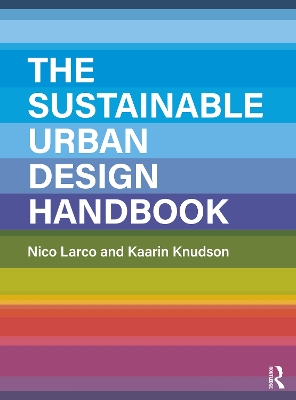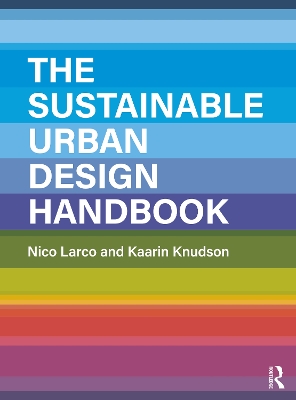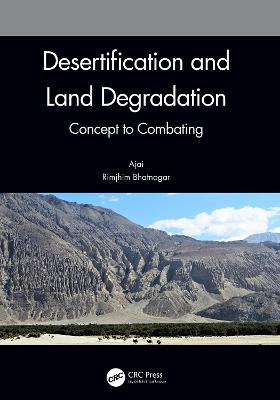Towards a Convergence Between Science and Environmental Education
 -10%
portes grátis
-10%
portes grátis
Towards a Convergence Between Science and Environmental Education
The selected works of Justin Dillon
Dillon, Justin
Taylor & Francis Ltd
04/2019
380
Mole
Inglês
9781138345324
15 a 20 dias
476
Preface
Introduction
Section 1: On Habitus
Dillon, J. (2007). An organic intellectual? On science, education, and the environment. In, K. Tobin and W.-M. Roth (eds), The Culture of Science Education. Its History in Person. Rotterdam: Sense Publishers, pp. 311-322.
Dillon, J. (2002). Managing teacher development: the changing role of the Head of Department in England. In, P. Fraser-Abder (ed.), Professional Development in Science Teacher Education: Local Insights with Lessons for the Global Community, Taylor and Francis, pp. 172-186.
Meyers, R.B., Brody, M., Dillon, J., Hart, P., Krasny, M., Monroe, M., Russell, C., & Wals, A. (2007). Towards creating an inclusive community of researchers: the first three years of the North American Association for Environmental Education research symposium. Environmental Education Research, 13(5), 639-661.
Clark, C., Brody, M., Dillon, J., Hart, P., & Heimlich, J. (2007). The messy process of research: dilemmas, process, and critique. Canadian Journal of Environmental Education, 12, 110-126.
Bevan, B., & Dillon, J. (2010). Broadening views of learning: developing educators for the 21st Century through an international research partnership at the Exploratorium and King's College London. The New Educator, 6, 167-180.
Section 2: On methodological issues
Dillon, J. and Wals, A. (2006). On the dangers of blurring methods, methodologies and ideologies in environmental education research. Environmental Education Research, 12(3/4), 549-558.
Dillon, J., & Reid, A. (2004). Issues in case study methodology in investigating environmental and sustainability issues in higher education: towards a problem-based approach? Environmental Education Research, 10(1), 23-37.
Section 3: Developing theories of learning, identity and culture
Dillon, J., Kelsey, E., & Duque-Aristizabal, A. M. (1999). Identity and culture: theorising emergent environmentalism. Environmental Education Research, 5(4), 395-405.
Dillon, J., & Teamey, K. (2002). Reconceptualising environmental education - taking account of reality. Canadian Journal of Science, Mathematics and Technology Education, 2(4), 467-483.
Dillon, J. (2003). On learners and learning in environmental education: Missing theories, Ignored communities. Environmental Education Research, 9(2), 215-226.
Section 4: Challenges and opportunities - science, the environment and the outdoors
Dillon, J., Rickinson, M., Teamey, K., Morris, M., Choi, M. Y., Sanders, D., & Benefield, P. (2006). The value of outdoor learning: evidence from research in the UK and elsewhere. School Science Review, 87(320), 107-111.
Dillon, J., Rickinson, M., Sanders, D., & Teamey, K. (2005). On food, farming and land management - towards a research agenda to reconnect urban and rural lives. International Journal of Science Education. 27(11), 1359-1374.
Dillon, J. and Reid, A. (2007). Science, the environment and citizenship: teaching values at Minstead Study Centre. In, D. Corrigan, J. Dillon, & R. Gunstone (eds), The Re-emergence of Values in the Science Curriculum. Rotterdam: Sense Publishers, pp. 77-88.
Dillon, J. (2013). Barriers and benefits to learning in natural environments: towards a reconceptualisation of the possibilities for change. COSMOS 8(2), 1-14.
Section 5: Classroom issues - the emergence of Science|Environment|Health
Dillon, J., & Gill, P. (2001). Risk, environment and health: aspects of policy and practice. School Science Review, 83(303), 65-73.
Dillon, J. (2009). Approaching 'soft disasters' in the classroom: teaching about controversial issues in science, technology, society, and environment education. In, A. Jones, & M. de Vries (eds), International Handbook of Research and Development in Technology Education. Rotterdam: Sense, pp. 297-306.
Dillon, J. (2009). On scientific literacy and curriculum reform. International Journal of Environmental and Science Education, 4(3), 201-213.
Dillon, J. (2012). Science, environment and health education: towards a reconceptualisation of their mutual interdependences. In, A. Zeyer, & R. Kyburz-Graber (eds), Science|Environment|Health - towards a renewed pedagogy for science education. Dordrecht: Springer, pp. 87-101.
Section 6: Science engagement and communication
Dillon, J. (2011). Science communication - a UK perspective. International Journal of Science Education, Part B: Communication and Public Engagement, 1(10), 5-8.
Kelsey, E. and Dillon, J. (2010). "If the public knew better, they would act better": Challenging the myth of the ignorant public. In, R. Stevenson, & J. Dillon (eds), Engaging Environmental Education: Learning, Culture and Agency. Rotterdam: Sense, pp. 99-110.
Dillon, J., & Hobson, M. (2012). Communicating global climate change: issues and dilemmas. In, J. Gilbert, B. Lewenstein, & S. Stocklmayer (eds), Communication for Engagement in Science and Technology. New York: Routledge, pp. 215-228.
Section 7: Science, Environment and sustainability
The final section sets out my position on the relationship between science, the environment and sustainability. #22 is a critique of simplistic thinking about the relationship between science and environmental education. #23 is a critique of education for sustainable development. #24 lays out my current thinking on the need for a convergence of science and environmental education.
Dillon, J. (2005). 'Silent Spring': Science, the environment and society. School Science Review, 86(316), 113-118.
Dillon, J., & Huang, J. (2010). Education for sustainable development: Opportunity or threat? School Science Review, 92(338), 39-44.
Wals, A.E.J, Brody, M., Dillon, J, & Stevenson, R.B. (2014). Convergence between science and environmental education. Science, 344, 583-4.
Final thoughts
Preface
Introduction
Section 1: On Habitus
Dillon, J. (2007). An organic intellectual? On science, education, and the environment. In, K. Tobin and W.-M. Roth (eds), The Culture of Science Education. Its History in Person. Rotterdam: Sense Publishers, pp. 311-322.
Dillon, J. (2002). Managing teacher development: the changing role of the Head of Department in England. In, P. Fraser-Abder (ed.), Professional Development in Science Teacher Education: Local Insights with Lessons for the Global Community, Taylor and Francis, pp. 172-186.
Meyers, R.B., Brody, M., Dillon, J., Hart, P., Krasny, M., Monroe, M., Russell, C., & Wals, A. (2007). Towards creating an inclusive community of researchers: the first three years of the North American Association for Environmental Education research symposium. Environmental Education Research, 13(5), 639-661.
Clark, C., Brody, M., Dillon, J., Hart, P., & Heimlich, J. (2007). The messy process of research: dilemmas, process, and critique. Canadian Journal of Environmental Education, 12, 110-126.
Bevan, B., & Dillon, J. (2010). Broadening views of learning: developing educators for the 21st Century through an international research partnership at the Exploratorium and King's College London. The New Educator, 6, 167-180.
Section 2: On methodological issues
Dillon, J. and Wals, A. (2006). On the dangers of blurring methods, methodologies and ideologies in environmental education research. Environmental Education Research, 12(3/4), 549-558.
Dillon, J., & Reid, A. (2004). Issues in case study methodology in investigating environmental and sustainability issues in higher education: towards a problem-based approach? Environmental Education Research, 10(1), 23-37.
Section 3: Developing theories of learning, identity and culture
Dillon, J., Kelsey, E., & Duque-Aristizabal, A. M. (1999). Identity and culture: theorising emergent environmentalism. Environmental Education Research, 5(4), 395-405.
Dillon, J., & Teamey, K. (2002). Reconceptualising environmental education - taking account of reality. Canadian Journal of Science, Mathematics and Technology Education, 2(4), 467-483.
Dillon, J. (2003). On learners and learning in environmental education: Missing theories, Ignored communities. Environmental Education Research, 9(2), 215-226.
Section 4: Challenges and opportunities - science, the environment and the outdoors
Dillon, J., Rickinson, M., Teamey, K., Morris, M., Choi, M. Y., Sanders, D., & Benefield, P. (2006). The value of outdoor learning: evidence from research in the UK and elsewhere. School Science Review, 87(320), 107-111.
Dillon, J., Rickinson, M., Sanders, D., & Teamey, K. (2005). On food, farming and land management - towards a research agenda to reconnect urban and rural lives. International Journal of Science Education. 27(11), 1359-1374.
Dillon, J. and Reid, A. (2007). Science, the environment and citizenship: teaching values at Minstead Study Centre. In, D. Corrigan, J. Dillon, & R. Gunstone (eds), The Re-emergence of Values in the Science Curriculum. Rotterdam: Sense Publishers, pp. 77-88.
Dillon, J. (2013). Barriers and benefits to learning in natural environments: towards a reconceptualisation of the possibilities for change. COSMOS 8(2), 1-14.
Section 5: Classroom issues - the emergence of Science|Environment|Health
Dillon, J., & Gill, P. (2001). Risk, environment and health: aspects of policy and practice. School Science Review, 83(303), 65-73.
Dillon, J. (2009). Approaching 'soft disasters' in the classroom: teaching about controversial issues in science, technology, society, and environment education. In, A. Jones, & M. de Vries (eds), International Handbook of Research and Development in Technology Education. Rotterdam: Sense, pp. 297-306.
Dillon, J. (2009). On scientific literacy and curriculum reform. International Journal of Environmental and Science Education, 4(3), 201-213.
Dillon, J. (2012). Science, environment and health education: towards a reconceptualisation of their mutual interdependences. In, A. Zeyer, & R. Kyburz-Graber (eds), Science|Environment|Health - towards a renewed pedagogy for science education. Dordrecht: Springer, pp. 87-101.
Section 6: Science engagement and communication
Dillon, J. (2011). Science communication - a UK perspective. International Journal of Science Education, Part B: Communication and Public Engagement, 1(10), 5-8.
Kelsey, E. and Dillon, J. (2010). "If the public knew better, they would act better": Challenging the myth of the ignorant public. In, R. Stevenson, & J. Dillon (eds), Engaging Environmental Education: Learning, Culture and Agency. Rotterdam: Sense, pp. 99-110.
Dillon, J., & Hobson, M. (2012). Communicating global climate change: issues and dilemmas. In, J. Gilbert, B. Lewenstein, & S. Stocklmayer (eds), Communication for Engagement in Science and Technology. New York: Routledge, pp. 215-228.
Section 7: Science, Environment and sustainability
The final section sets out my position on the relationship between science, the environment and sustainability. #22 is a critique of simplistic thinking about the relationship between science and environmental education. #23 is a critique of education for sustainable development. #24 lays out my current thinking on the need for a convergence of science and environmental education.
Dillon, J. (2005). 'Silent Spring': Science, the environment and society. School Science Review, 86(316), 113-118.
Dillon, J., & Huang, J. (2010). Education for sustainable development: Opportunity or threat? School Science Review, 92(338), 39-44.
Wals, A.E.J, Brody, M., Dillon, J, & Stevenson, R.B. (2014). Convergence between science and environmental education. Science, 344, 583-4.
Final thoughts
















